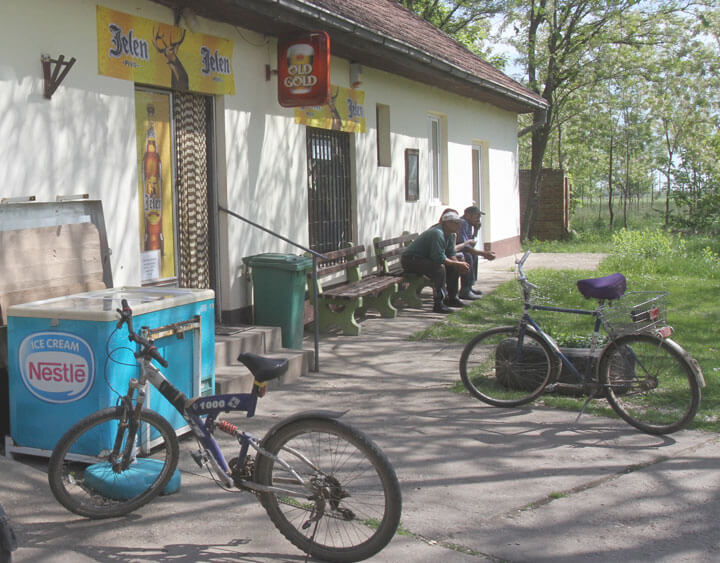Today, almost everyone in Serbia will say that we were under the Ottoman Empire rule for five hundred years. How could they not, because we were taught about it by folk epic poetry, taught about it at school, we watched serious people on television talking about it. The round figure, easy to remember, seems impressive, many nations do not have even half as long a history as we spent in slavery, and we existed before and after it. Everything is there except the truth. No part of today’s Serbia has been under Ottoman occupation for five centuries, most not even close, Belgrade, for example, a little over 250 years.
But based on what would we then create the myth of the vitality of the people if we adhered to precise historical figures? On what would we build that deep-rooted sense of sacrifice if generations had learned that the Belgrade area was under the Ottoman rule for about 260 years, Šumadija 330 years, Mačva a little less than 300 years? The sacrifice of our ancestors would not be any less, but without the “rounding” to the great 500 years, only a historical fact would remain, not the material for the myth on which we still build dangerous misconceptions.
That it is disastrous to look at the present, and especially at the future exclusively through the prism of the victim, was recently briefly pointed out by Aleksandar Vučić in an interview for the popular channel Face TV from Sarajevo. He did not go so far as to mention the Ottomans, but he did not have to. The syndrome that many in the Balkans suffer from, which he talked about, does not differ according to historical epochs. It has the same consequences when you talk about the Ottoman period, and about both world wars, or about the wars of the 90s. What they have in common is that you have been a victim at least once and that you want to build your present based entirely on that, and especially your future. Because you are convinced that the status of a victim gives you enough rights not to do anything with your life today and tomorrow, because someone else (the executioner) is obliged to take care of it and pay for it.
The Serbian president says that both Serbs and he personally suffered from this syndrome until the 1990s, but that many Bosniaks in particular still face this problem today, “presenting themselves as victims, without looking to the future and without rationalizing the present.” Many in B&H have probably experienced this message as cruel, but it would be good to understand it as friendly coming from a man who admits that he himself went through such a phase and that he managed to overcome it. Even today, a quarter of a century since the end of the war, B&H is a country where the past and the victims determine its present and future. It is dysfunctional, among other things, because of its deep-rooted attitude towards itself as a victim, which paralyzes it to make a step forward and start solving real problems. The victims of the war in B&H are real, they were endured by all three nations, and none of them will forget them. But that memory has been going on for too long as the main social narrative, which for many has twisted into a political platform, blocking attempts of the entire community to step into the future and start working.
There is no nation in Europe that has not suffered and was a victim in recent history, but none of them lost their spirits, buried in that terrible past, mourning the dead and ruins, expecting salvation from someone else as their obligation. Such an expectation is simply not realistic and is disastrous for those who hope for it. Vučić spoke exactly about that, although he risked being misunderstood by many in Serbia, and even by some of his supporters, who are still convinced that Serbs have made so many sacrifices throughout history that they should not move a finger until Judgement Day, expecting their salaries, pensions, roads and hospitals to come from those who made them victims.
His, perhaps risky, confrontation with this destructive feature of our mentality, began, in fact, long before the interview for Bosnian television in which he spoke directly about it. It started from the moment he came to the position of making decisions on behalf of all citizens, and for years they have been directly confronted with the mentality of the victim, who believes that someone owes them something because of that. Knowing that in today’s world there is no debtor-creditor relationship between the victim and the executioner, Vučić’s policy turned to “earthly” standards and brought results. In the meantime, no one has forgotten the victims in Serbia, and the country has become the economic, political and development leader of the region, as described in the most influential world centers. When you manage to overcome the victim syndrome with hard work, then you can easily reject any attempt of someone taking advantage of your former weakness. That, for example, was the idea of the famous “non-paper” about a new division in the Balkans – show them some new, crazy borders, everyone will shout out loud that they have been damaged and sacrificed and will not deal with anything else for a long time. It may have worked somewhere, but it certainly didn’t in Serbia. Here, the victims have been left for some time to remembrance and respect where they belong, they have been stripped of the power to run the country and its development, and that job has been taken over by living people facing the future.
